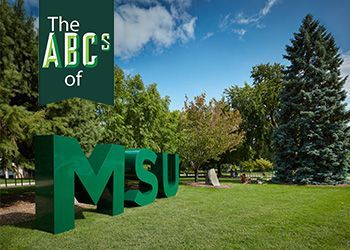Patrick Hawkins: Taking Health Care Out of the Office in Flint

After providing health care to the people of Flint for more than 20 years, Patrick Hawkins was well positioned to see the effects of the city’s lead-tainted water crisis up close—and in places others hadn’t looked.
His friends, colleagues, and patients affectionately call him “Doctor Hawkins.” A giant man with a heart to match, his faith and professional training compelled him to take action. Hawkins, an advanced nurse practitioner, now volunteers with the Michigan Department of Health and Human Services, helping organize free community health fairs to bring lead screenings, nutrition support, educational materials and other services to hard-to-reach populations in Flint.
“Water is the one thing that can build or destroy you. Everything revolves around it,” he said.
Hawkins, who is also an instructor at MSU’s College of Nursing, lives by the motto “everyone is someone’s someone” and strives to treat every patient like family. After 13 years of moving around the world as a staff nurse in the U.S. Army, he came to the Flint area to be near his wife’s family while she attended school. He fell in love with it and stayed.
Nurse practitioners are qualified to treat patients without the direct supervision of a doctor. Hawkins had already been doing outreach work through his practice at Kidney and Hypertension Consultants, organizing free health fairs offering everything from children’s vision screening and vaccinations to blood pressure tests and health insurance information. “There are clients who might be afraid because they are undocumented, or not able to get to a screening due to lack of transportation, so we’d bring services to them,” he explained.
Hawkins brings a deep sense of cultural sensitivity to the water situation. “After they found out about the contamination, some people were reluctant to trust those sent to help,” he said.
“They’d say, ‘They already didn’t protect us.’
So, we would go through organizations where trust existed, like religious and community groups.”
Three months after the crisis became public, he discovered that members of a Spanish-speaking parish were still drinking contaminated water because of language barriers. At a recent health fair at the church, Hawkins, clad in a white coat and brown fedora, functioned as a traffic controller of sorts, calling out over the crowd to direct patients to booths offering a range of services, and to organize the array of student volunteers from MSU and other nearby colleges and universities, all while managing vendors and supplies such as lead-fighting fresh foods and water filters.
“We educate about how and why they need to filter their water,” said Hawkins, who was named Caregiver of the Year by the American Kidney Fund in 2015. “We try to give hope; I don’t want an entire generation of young people thinking because they were exposed, they are powerless, or that they won’t mature. As an advanced health care advocate for patients, that speaks to your core.”



